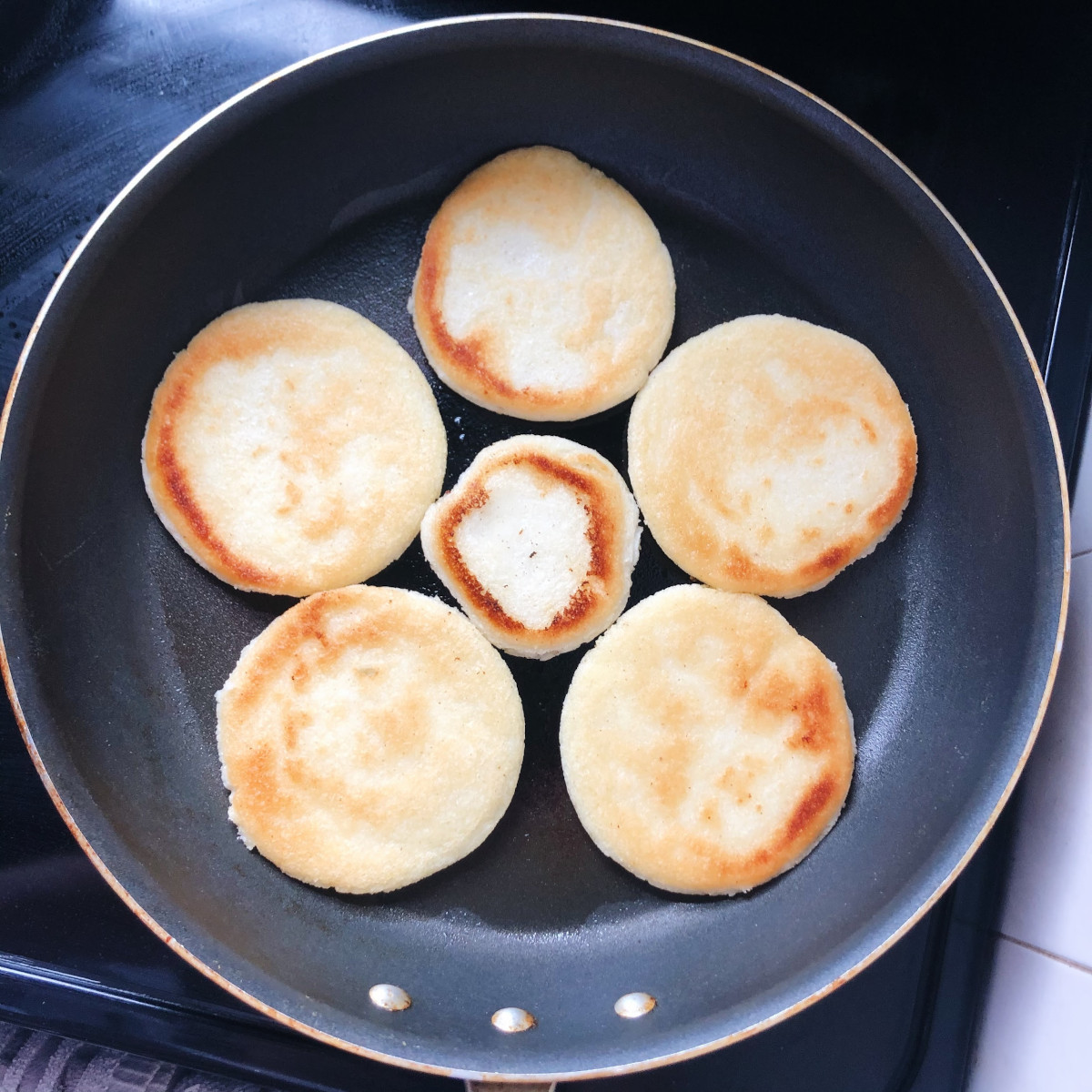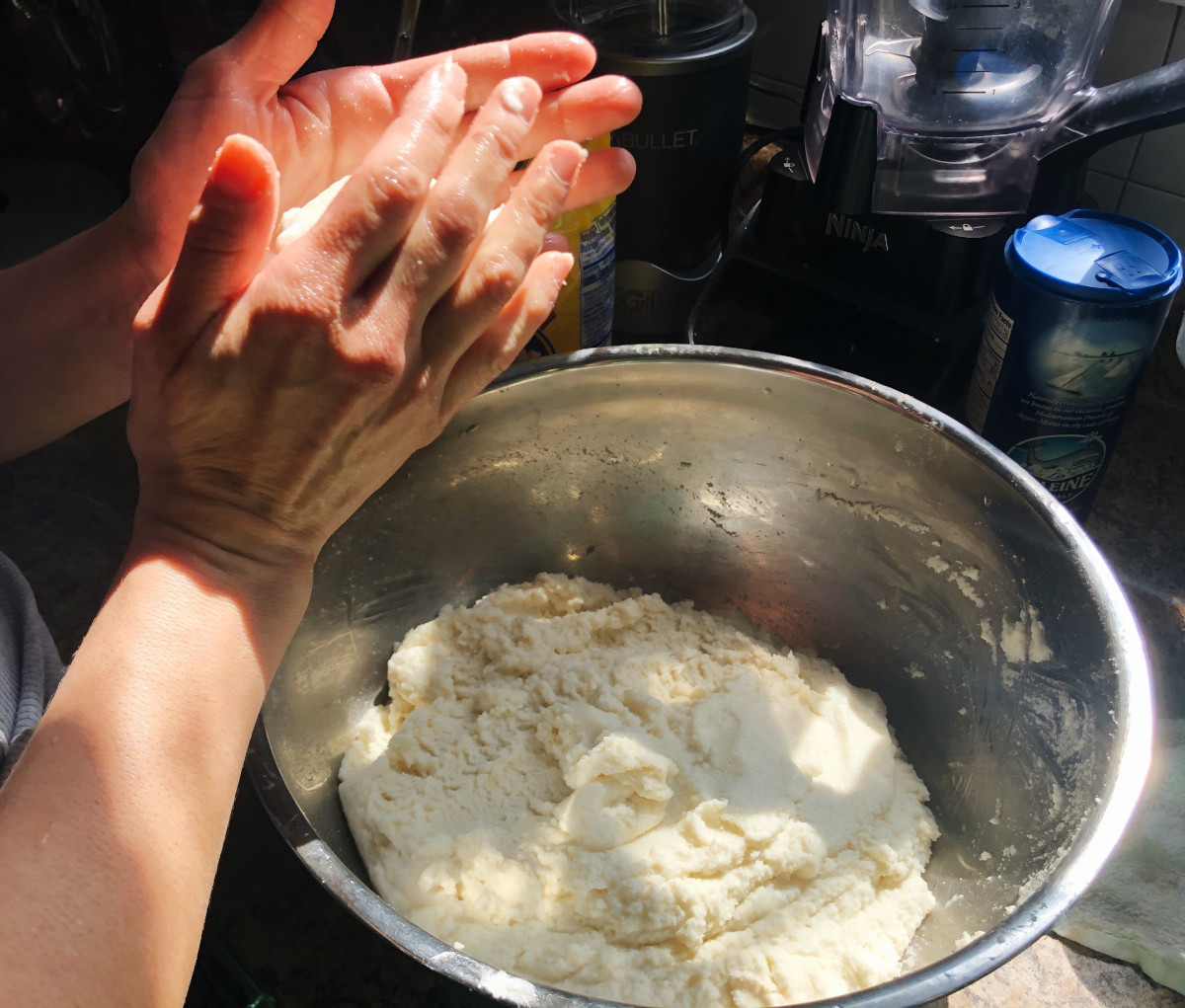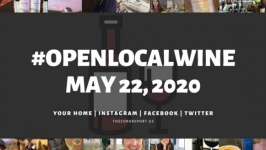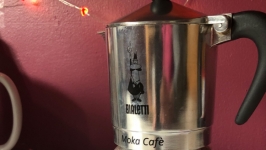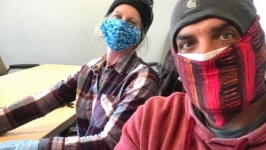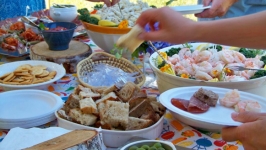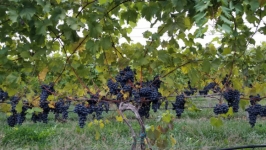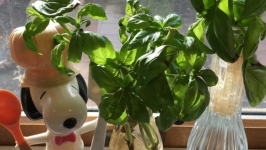Un Platado de Arepas
Editor’s Note: The crises of the past weeks have hit us all; we have been heartbroken, uplifted, unmoored. To help document the moment, Edible Jersey is sharing stories from our community.
In our house, we awake Saturday mornings to find un platado de arepas on the dining table. Platado is the Spanish word for a plateful. Technically plato is the Spanish word for plateful, but our language is extra.
Our table is full of plates with toppings like queso tropical, all types of eggs, butter, tomato, salami, avocado, black beans (caraotas for all my Venezuelans out there). If it isn’t on the table and we want it in our arepa, all we have to do is get it out of the fridge.
My mother’s arepas are perfectly circular, fried to an incredible toast, never too oily, thick enough to slice and stuff, thin enough to hold in one hand. Prize-winning.
Normally my mother works weekdays and wakes up early to commute. I always thought arepas were Saturday breakfasts because they were so good they could only be eaten on special occasions, like weekend breakfasts. But now that my mom’s employers have canceled her work shifts, all she has is time on her hands – time she uses to make arepas.
My mom works a lot but does not get paid much. In a normal week, my mom feels the stress and anxiety that comes with worrying about paying our bills. I know now, without her work, she feels it tenfold.
The arepa is an extension of my mother. Her heart in a meal. Making them is medicinal; a memory of Venezuela and a reminder of things that can’t be taken away from us.
Her escape has always been the gym. She wakes up at 5 am every morning and gets her workout in, but with the gyms closed now I think arepas have become her new therapy. She really gets in the zone. She’ll put her headphones on and listen to a podcast or music, drowning out the constant news of death tolls and rising case counts.
I walked into the kitchen on a Tuesday morning and smelled the ever-familiar smell of a frying arepa. In the frying pan was not the arepa I’ve been eating for 20 years. Half of the arepas had flecks of orange in them. Carrot? Others looked like arepa-esque tostones. Plaintain arepas? Y eso?
Mom is getting creative in quarantine – creative with her most perfect and famous recipe. “We have the tendency to eat more chips, chocolates, cookies and I thought about making something healthy that we would like,” she said. “My sisters in Venezuela have a lot of experience with surviving in times of difficulty, austerity, and scarcity.”
I thought my mom was going crazy to have altered the arepa, but now I see that the arepa has had to be changed long before my mom added some carrots into the mix. “In Venezuela, they make arepas out of oatmeal, sweet potatoes, carrots,” she told me.
“When you live in a constant state of fear and anxiety, the stress of a pandemic just feels normal,” she said. Siempre hemos estado bien. And it’s true, we somehow always survive.
The arepa is an extension of my mother. Her heart in a meal. Making them is medicinal; a memory of Venezuela and a reminder of things that can’t be taken away from us. Eating them is curative; bites of my mother’s love that protect me from harm, no matter what they’re made of.
Quarantine is not the new normal. Life will eventually return. My mom’s arepas will not always have carrots in the dough or be made out of plantain. She will not always prepare arepas on weekdays.
I do know my Saturday arepas will always be there. For now, I can’t blame my mom for her excessive arepa production. This is a time of adjustment. Arepas will always be arepas, and no matter how much they’re altered or what they’re stuffed with, they will occupy an arepa-sized space in my heart. Change can be good. Hell, those platano arepas were the bomb.
Life is different now. We need to be okay with that and figure out how to change our traditions to make life feel normal. We need to grow. We need to support our moms for baking too many muffins, trying to make sourdough bread, or making a new type of arepa for breakfast, lunch, and dinner.
Photos courtesy of the author.
